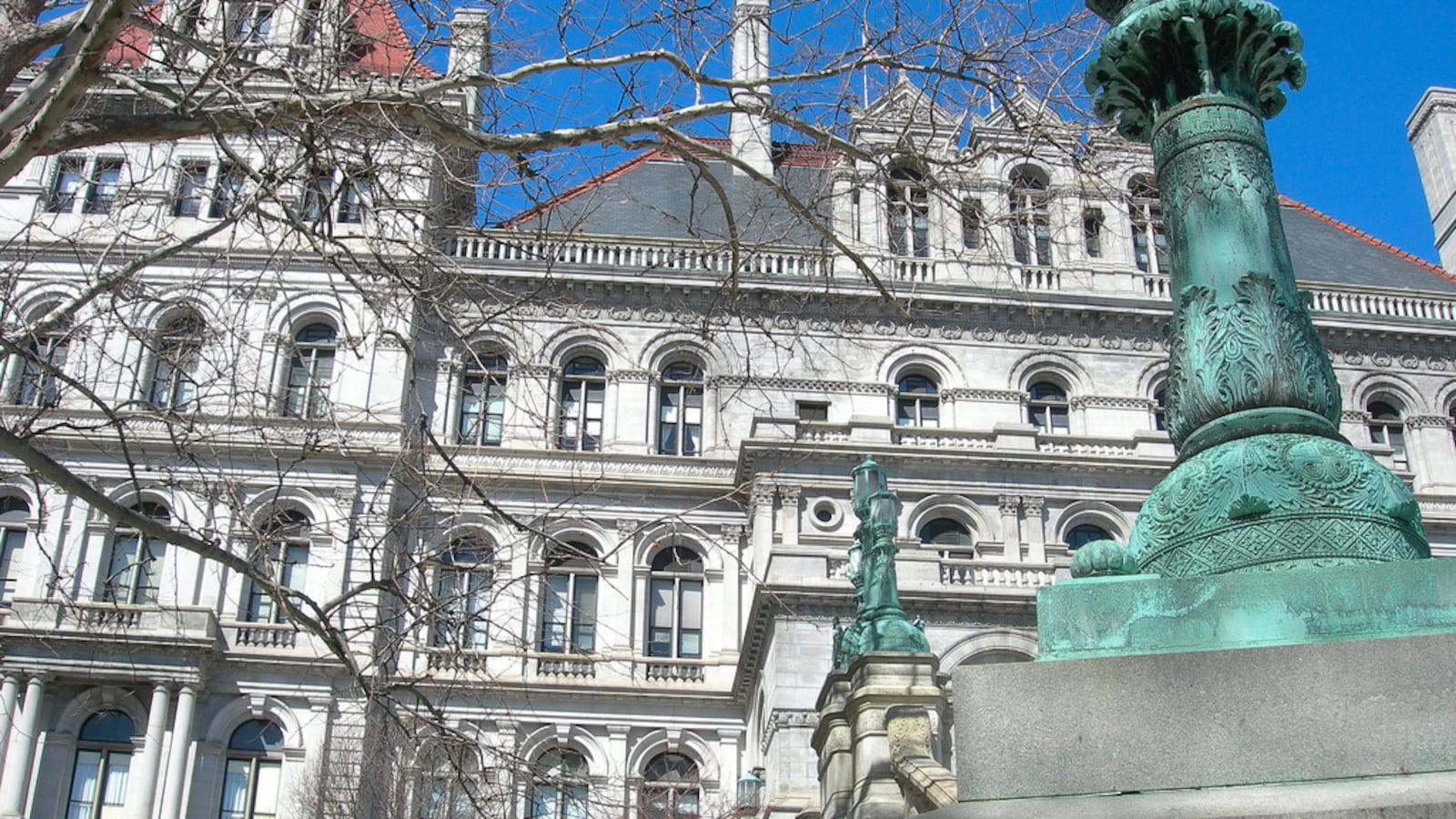With less than a week before the budget deadline, lawmakers are entering crunch time and education — one of the largest portions of the state budget — will be part of the last-minute negotiations.
However, there is less energy around education in this year’s budget process compared to previous years, when lawmakers fought over teacher evaluations or a new college scholarship.
Still, a number of issues have yet to be resolved: the overall level of education spending, Gov. Andrew Cuomo’s proposal that would allow state officials to approve certain local school district budgets, school safety measures, and charter school funding.
Here’s what we’ll be watching:
How much will the state boost education spending?
At the start of this legislative session, lawmakers expressed concerns that this would be a difficult budget year — and that education funding increases could take a hit as a result.
Between a federal tax plan that is expected to harm New York financially, a state deficit, and the threat of further federal cuts, a chorus of lawmakers and policymakers tamped down their requests for additional school funding. But the question remains: How much or how little will they set aside for school funding in the end?
Gov. Andrew Cuomo proposed a modest increase of $769 million, which is less than the Republican-led Senate’s proposed increase ($1 billion), the Democratic-led Assembly’s ($1.5 billion) and State’s Board of Regents’ ($1.6 billion). News outlets reported on Sunday night that lawmakers were tentatively closing in on a deal to increase school spending by about $1 billion.
It’s unclear what that will mean for students and schools, but at least one education advocacy group, which includes advocates for superintendents, teachers and parents, said that the state would need a $1.5 billion increase to maintain current services.
Will Cuomo win his proposal to approve certain school district budgets?
In his opening address this year, Cuomo promised to fight against “trickle-down education funding” and find a way to send more money to poor schools.
His proposed remedy would allow state officials to approve school district budgets from the state’s largest cities. If the budgets are not approved, districts would be denied their school funding increase.
The measure was unpopular with many education advocates and State Education Commissioner MaryEllen Elia, who would be given partial power under the provision to approve budgets. At a conference of school board members earlier this year, Elia looked into the crowd and said, “I am not interested in approving your budgets.”
Cuomo and other state officials have signaled a slight rhetorical shift on the issue in recent weeks. The governor’s Director of the Budget, Robert Mujica, sent a statement about school funding equity earlier this month that talked only about disclosing, but not approving, school budgets. Similarly, Cuomo made a push for school funding transparency during a radio appearance last week.
However, providing school funding transparency is not a new idea. In fact, all states will soon be required to provide school-by-school spending breakdowns under the federal Every Student Succeeds Act. The state’s top policymakers are already working with school districts to carry out this provision.
Will any school safety items make it into the final budget?
School safety has rocketed to the front of the national consciousness in the wake of the tragic school shooting in Florida that took the lives of 17 students.
The debate is playing out, on a smaller scale, in New York’s legislature. While Democratic lawmakers are pushing for gun control, Senate Republicans presented a package of school safety measures. One measure would require a police officer positioned in every New York City school during the school day.
What about charter schools?
Last year, a battle over charter school funding contributed to the most delayed budget on Cuomo’s watch. This year, fewer fights over charter school funding or policy seem to be brewing.
Still, charter school advocates remain committed to pushing for issues they have championed in the past. These include receiving the same amount of per pupil public funds as traditional district schools and eliminating limits on the number of charter schools that can open in New York.
Though the charter sector has been fairly quiet this year, there is precedent in Albany for charter advocates winning last-minute victories. In 2016, charter schools received a $54 million boost, which was double what Cuomo had proposed. The prior year, lawmakers doubled the number of schools that could open in New York City before the end of the legislative session.
Will the state continue to boost the funding streams it has supported in the past?
Cuomo made a significant education policy pivot in late 2015, when he backed off a series of controversial reforms — including tougher teacher evaluations — and shifted to providing needier schools with targeted resources.
Since then, the state has provided funding for community schools, which allows schools to become community hubs that offer additional services, such as healthcare. Lawmakers have also funded after-school programs and the state’s My Brother’s Keeper initiative, a program to help boys and young men of color reach their full educational potential. Cuomo outlined a series of similar initiatives this year, including an additional set of policies to fight student hunger.

